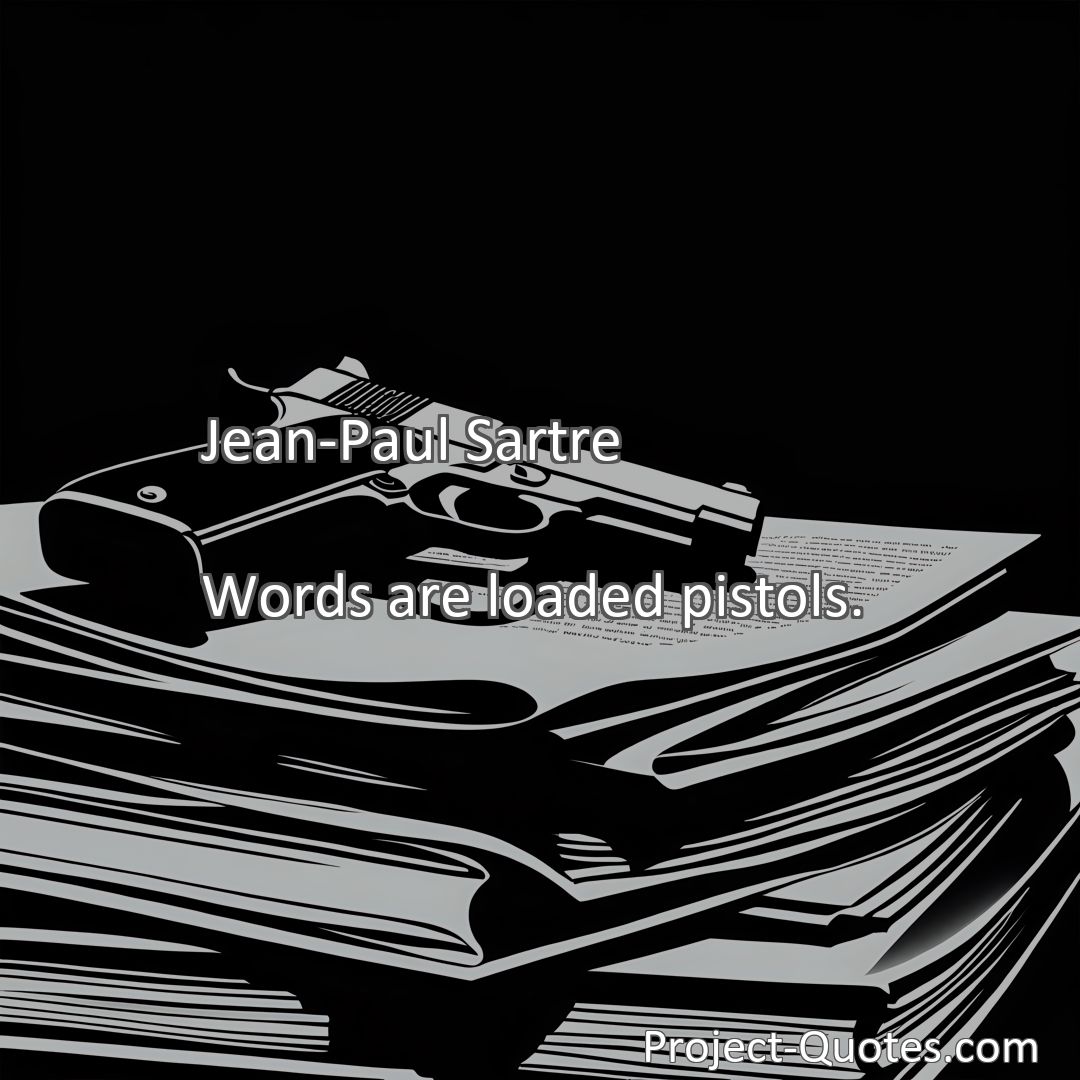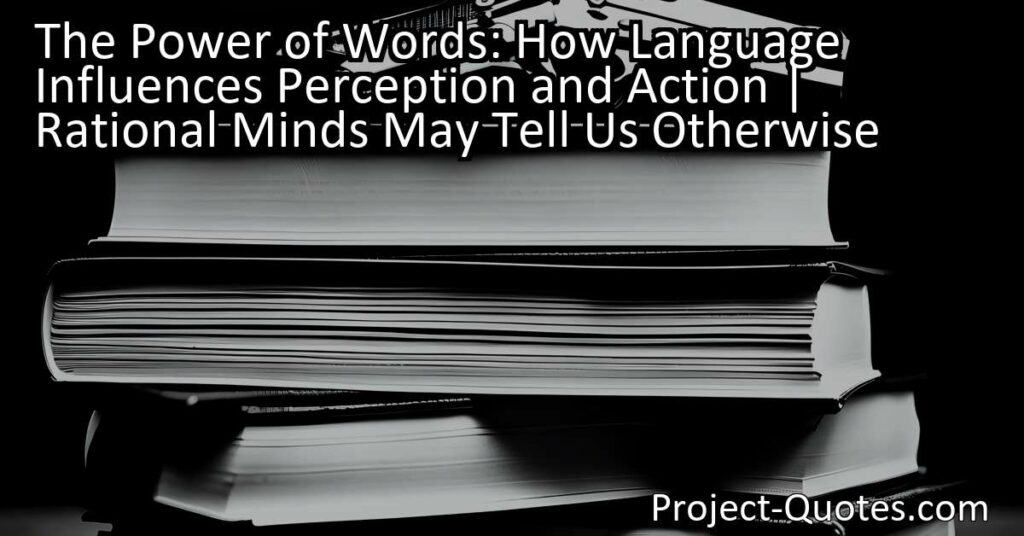Words are loaded pistols.
Jean-Paul Sartre
The Power of Words: How Language Influences Perception and Action | Rational Minds May Tell Us Otherwise While our rational minds may tell us otherwise, the power of words cannot be underestimated. Language has the potential to shape our thoughts, influence our actions, and impact the world around us. Whether it’s shaping our perception of reality or persuading and manipulating, words possess a profound influence that we must be mindful of in order to create a more compassionate and understanding world.
Table of Contents
Meaning of Quote – Words are loaded pistols.
Have you ever thought about the power of words? How they have the potential to affect and shape our lives in profound ways? Jean-Paul Sartre, a French philosopher, writer, and political activist, once said, “Words are loaded pistols.” Although this statement might sound a bit puzzling at first, it carries a profound truth about the impact of language on our society and on us as individuals.
Now, let’s take a moment to unpack this idea. Imagine each word as a bullet loaded into a gun. Just like a pistol, words possess immense power; they have the ability to shape our thoughts, influence our actions, and ultimately impact the world around us. In this sense, Sartre urges us to recognize the potential danger and influence that lies within every word we utter.
One evident example of the power of words can be seen in how they shape our perception of reality. Words are not mere descriptions; they often carry deeply embedded meanings, associations, and emotions. For instance, think about the word “freedom.” Depending on our personal experiences, backgrounds, and cultural contexts, this word can evoke a wide range of emotions and connotations. To some, it may symbolize liberation, opportunity, and personal autonomy, while to others, it may signify chaos, uncertainty, or even the absence of structure. This simple word can wield great power, as it can influence how individuals and societies perceive the concept of freedom and shape their behavioral responses accordingly.
Moreover, words can also be employed as powerful tools of persuasion and manipulation. Just like skilled marksmen, those who possess the ability to use language effectively can aim their words like bullets, hitting their targets with precision. Think about advertisements, political speeches, or even a debate among friends. Effective use of words can influence our opinions, spark our emotions, and sway us to act in certain ways. Advertisers, for example, carefully choose their words and employ persuasive techniques to convince us that their products are essential to our happiness or well-being, even when our rational minds may tell us otherwise. Similarly, politicians often rely on eloquent speeches to persuade voters to support their policies, sometimes relying on emotional triggers rather than logical arguments.
Beyond shaping perceptions and influencing behavior, words can also foster connection and understanding among individuals. When used with empathy and care, they can build bridges between people, fostering friendship and intimacy. A kind word, a heartfelt compliment, or a simple “thank you” can make someone’s day brighter and strengthen interpersonal bonds. In contrast, a poorly chosen or hurtful word can create division, sow seeds of animosity, and even cause lasting emotional harm.
It is essential to recognize that words carry the power not only to hurt but also to heal. Just as pistols can be used for self-defense, words can be employed to uplift, inspire, and bring comfort to others. We all know the feeling when someone gives us an encouraging word during a challenging time it can truly be a transformative experience.
For instance, imagine a student struggling in school, feeling discouraged and convinced of their incompetence. If a teacher, with their words, conveys belief, encouragement, and reassurance, it can ignite a spark within that student. Suddenly, the once-loaded pistol of negative self-perception can become a tool for growth and self-improvement.
Conversely, if that same student is met with criticism, belittlement, or harsh words, the impact can be devastating. The bullet of negativity can wound deeply, obstructing personal growth, and leading to a negative cycle of self-doubt and demotivation. In this way, Sartre’s analogy reminds us to be mindful and deliberate in our choice of words, recognizing their potential to either empower or harm others.
It is crucial to acknowledge that not all individuals possess equal access to the power of words. Societal structures, inequality, and systemic biases can limit certain voices, perpetuating marginalization and silencing the experiences of some. Recognizing this, it becomes a responsibility for those with access to the loaded pistols of words to empower and amplify the voices of the silenced, ensuring a more inclusive and equitable society.
In conclusion, Jean-Paul Sartre’s quote, “Words are loaded pistols,” reminds us of the immense power and influence that words carry. Whether shaping our perception of reality, persuading and manipulating, creating connections, or fostering growth, words possess the ability to shape our thoughts and actions. Hence, it is essential to be mindful of the impact of words in our daily lives and interact with them responsibly. By harnessing the power of words, we can aim to create a world that is more compassionate, empathetic, and understanding.
I hope this quote inspired image brings you hope and peace. Share it with someone who needs it today!


